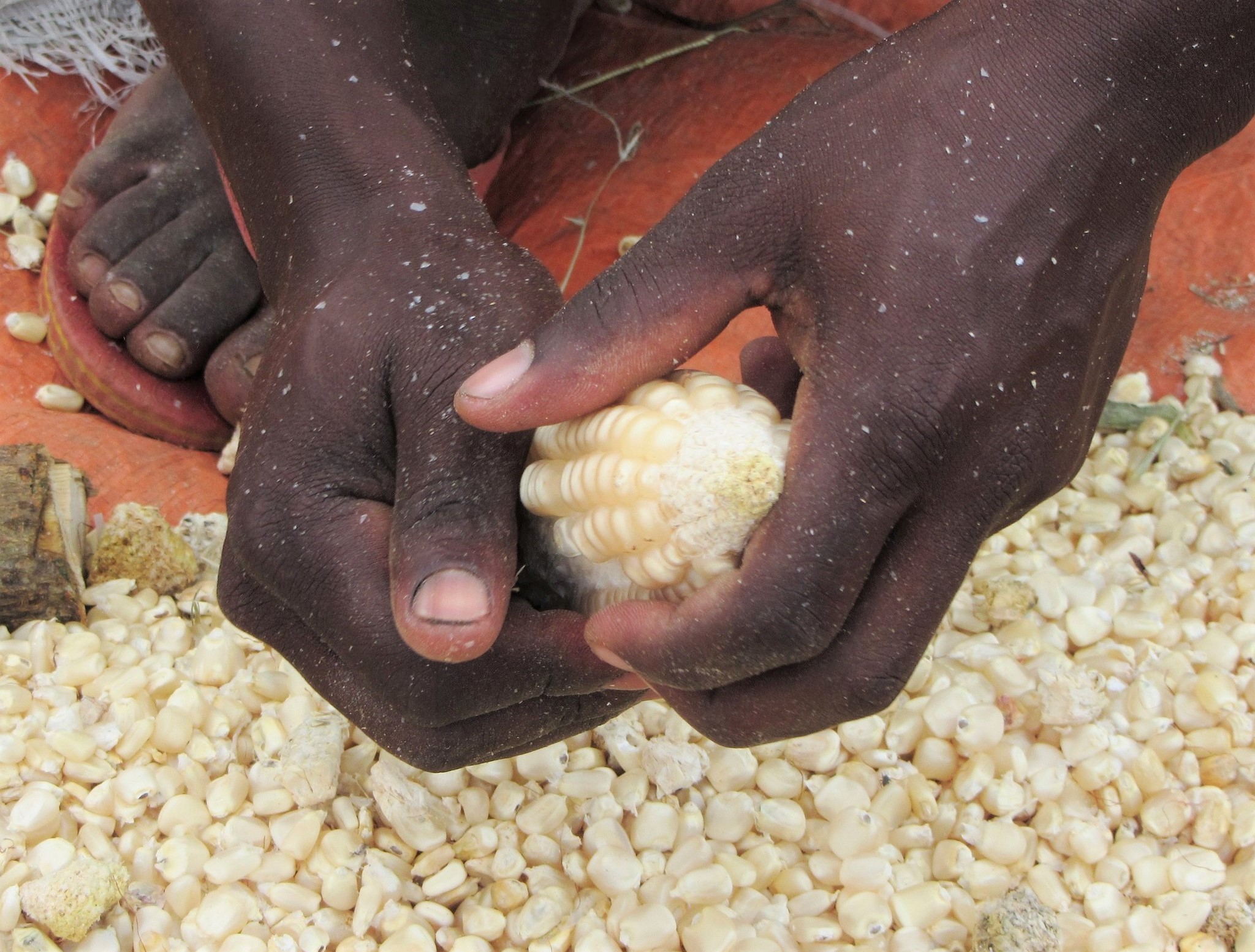
In the face of complex climate risks in Uganda, maize breeders are ensuring smallholder farmers have access to high-yielding and stress-tolerant maize varieties. Breeding programs from Uganda’s National Agricultural Research Organisation (NARO), International Maize and Wheat Improvement Center (CIMMYT), and private companies have worked together to reach real progress – and have identified steps to advance even further.
A recent study published in Frontiers in Plant Science aimed to estimate the genetic gains achieved by these programs for grain yield and key agronomic traits in pre-commercial and commercial maize varieties. The study used historical data from national performance trials (NPT) and an era trial of maize hybrids released between 1999 and 2020. Genetic gain measures the performance increase of a crop variety achieved through genetic selection.
The study results showed significant annual genetic gains for grain yield and agronomic traits in the maize varieties tested. The estimated genetic gain was 2.25% (or 81 kg ha-1 year-1) for the NPT study. CIMMYT entries had a gain of 1.98% per year, while NARO and private-sector maize entries recorded genetic gains of 1.30% and 1.71% per year, respectively.
This demonstrates strong progress for CGIAR-NARES (national agricultural research and extension services) networks. CGIAR Accelerated Breeding and other Genetic Innovation Initiatives support CGIAR/NARES breeding programs to deliver higher rates of genetic gain, providing farmer-preferred, high-performing varieties to smallholders. Genetic gains should translate into higher crop productivity and resilience.
The study highlights the importance of public-private partnerships in development and delivery new genetics to farmers in Uganda. The sustained increase in maize production in the country could be attributed to various factors, including the infusion of improved stress-tolerant maize varieties and replacement of obsolete varieties, coupled with productivity increase by both small- and emerging large-scale farmers.
For CGIAR-NARES to continue this path of growth, there is a need to modernize the breeding programs by incorporating molecular markers and doubled haploid technologies, faster recycling of elite lines, and switching to product profile-based breeding with optimised breeding schemes. The study also noted that gaps in seed systems also need to be addressed to ensure smallholder farmers get these stress-resilient varieties.
Over three years, CGIAR Excellence in Breeding (whose support is now mostly provided through Breeding Resources Initiative) and Accelerating Genetic Gains for Maize and Wheat Improvement (AGG) provided support and helped design improvement plans for NARO’s breeding program. The next changes will mean a variety of development and replacement will be based on Target Product Profiles tailored to market demands.
As over 70% of the Ugandan population relies on maize for food and income, the study highlights the importance of continued investment in breeding programs to develop stress-tolerant maize varieties.
See also:
- Frontiers in Plant Science: Genetic trends for yield and key agronomic traits in pre-commercial and commercial maize varieties between 2008 and 2020 in Uganda
- Overcoming hurdles to change: A NARO case study (video)
- Five ways CGIAR accelerated crop breeding in 2022
- Five strides forward for CGIAR crop breeding resources and services
- Brochure: Accelerated Breeding in Uganda
—–
We would like to thank all funders who support CGIAR research through their contributions to the CGIAR Trust Fund. And thank you to the supporters and partners of CGIAR Excellence in Breeding, particularly the funding from Bill and Melinda Gates Foundation. Main image: Maize kernels being removed from cob in Uganda. Credit: Flickr – Malcolm and Amanda